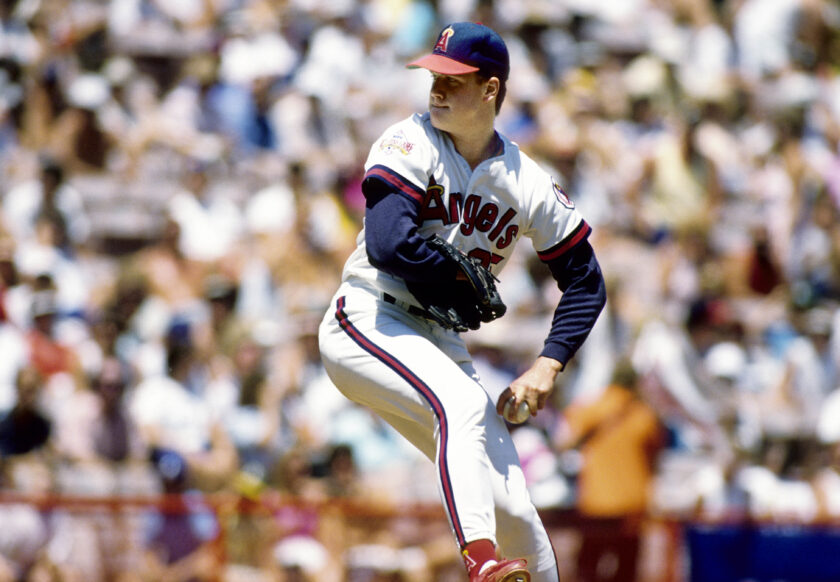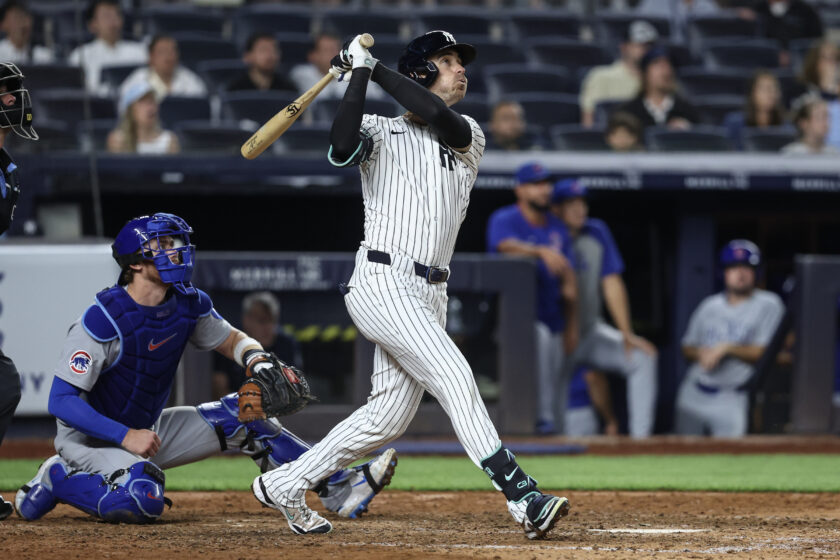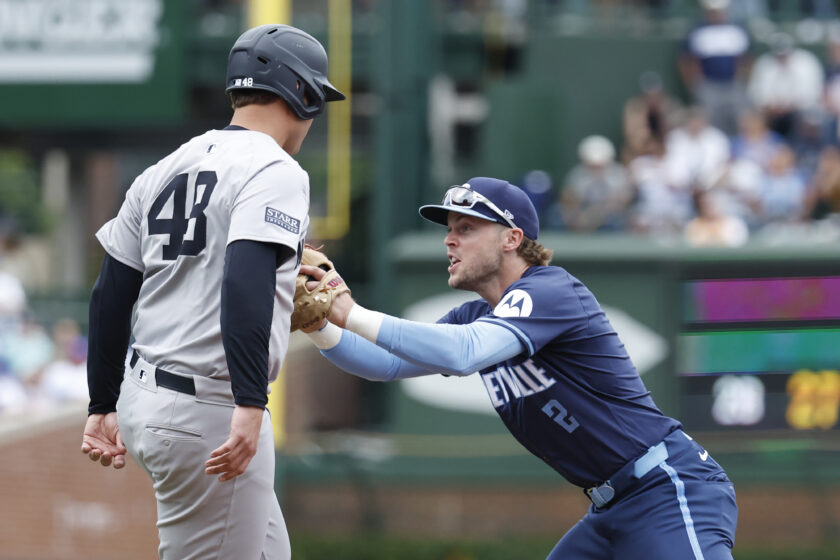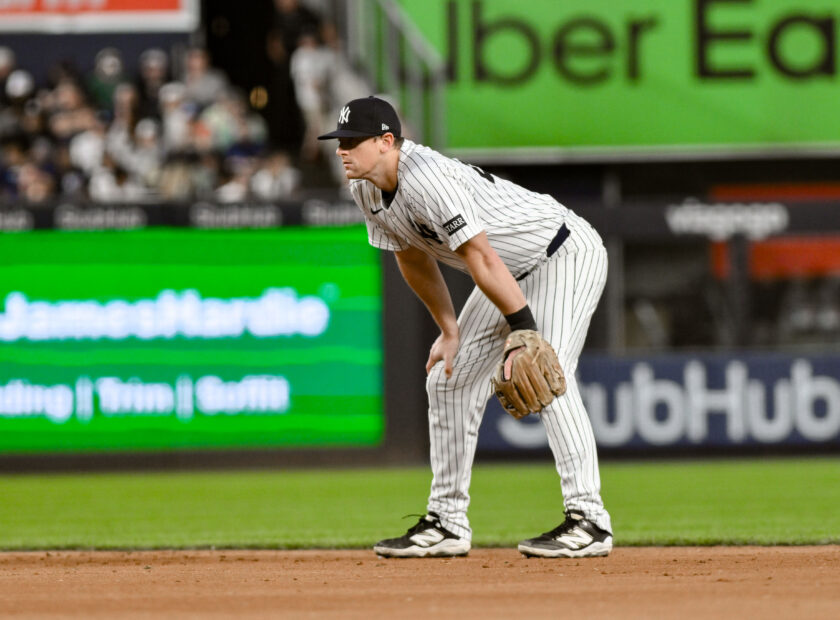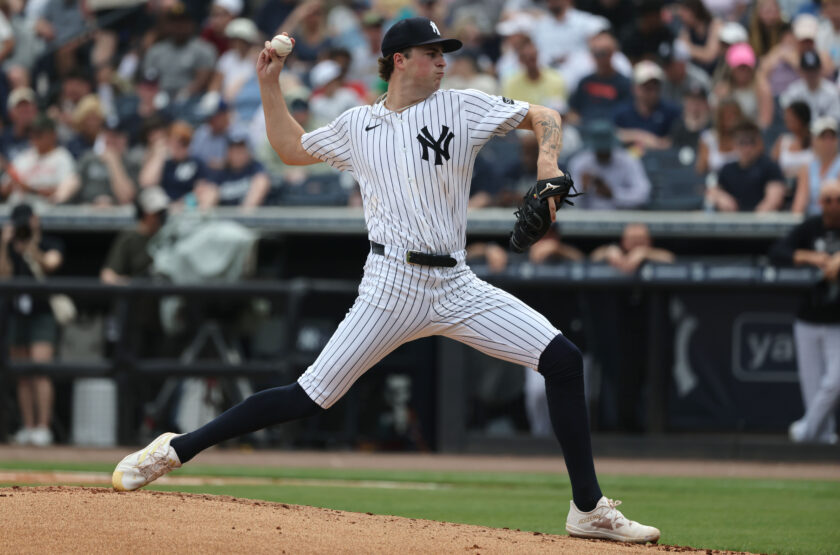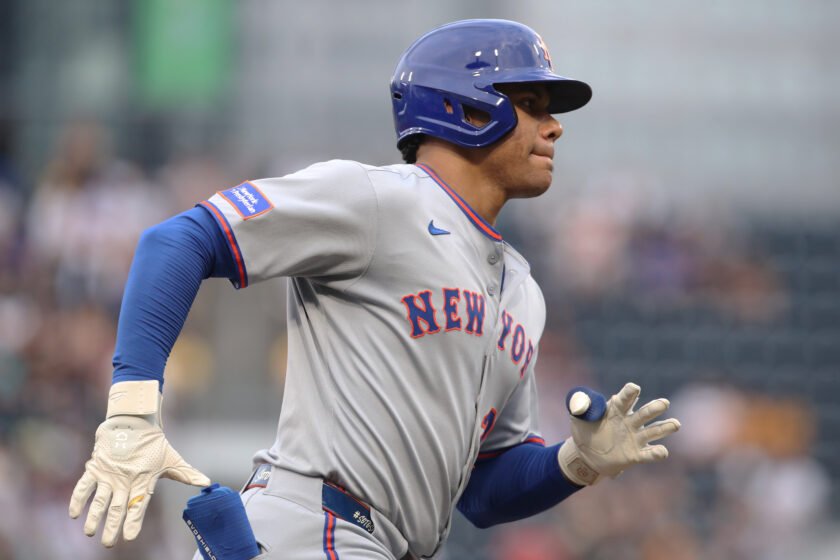Bernie Williams returns to talk family, music, baseball memories, & more
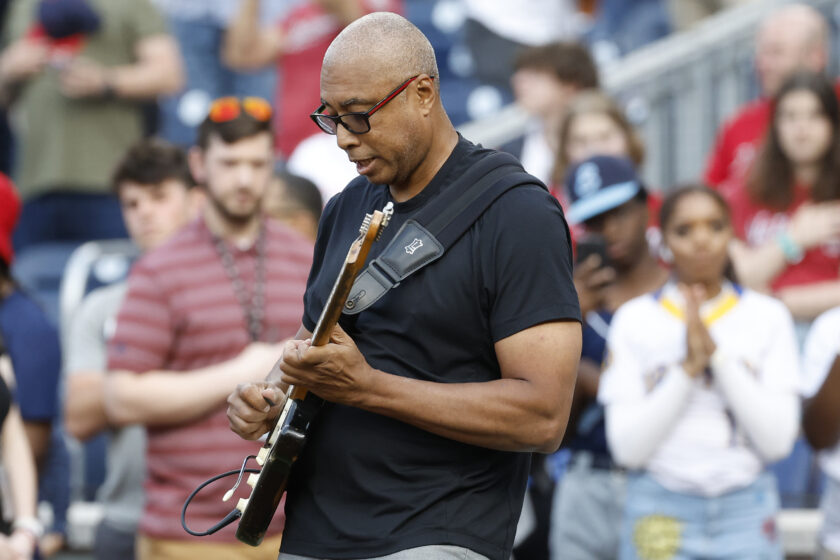
Almost a year ago, I had the pleasure of sitting down with former Yankees star center fielder Bernie Williams.
As we are all well aware, his life after baseball has largely featured everything except baseball. Williams turned his talent on the guitar into a Latin Grammy nomination and continues to perform live. As we noted last year, the former baseball hero now uses his powers for good off the field via his Tune In To Lung Health initiative, which features breathing and musical exercises for those suffering from interstitial lung disease.
It’s an important cause for Bernie Williams. His father, Bernabe, passed away from idiopathic pulmonary fibrosis (IPF) in 2001.

One year later, I had the pleasure of speaking with Williams again. And wouldn’t you know, there was more to last year’s talk than I thought.
Josh Benjamin: Bernie, you and I last spoke almost a year ago about your Tune Into Lung Health initiative for Rare Disease Day. Catch me up! How’s everything going?
Bernie Williams: It’s Rare Disease Day tomorrow, and we’re trying to, you know, like last year, keep raising awareness about Tune Into Lung Health and interstitial lung disease. Which, as you know, is the disease that took my dad’s life away in 2001. We’re just having a great response from the website, so we’re just trying to keep it going strong and drive as many people as we can to the website so they can take advantage of all the great resources that it has.
JB: What have you learned in the last year in spreading awareness through this initiative?
BW: Well, one of the things that I’ve learned is that there’s a lot of work to be done still. It’s just such a rewarding feeling to know that you’re doing something that is helping a lot of people, helping the community, and giving back knowing that there’s people that, last year, might not have known they have these diseases.
But because of our advocacy and making sure that people knew, they have gotten tested. This is something they kind of draw upon and take good advantage of it. It gives us more opportunities to do what we’re doing, and even more motivation because we know it’s working.
JB: Music is a big part of your life, so much that Tune In To Lung Health has some musical exercises. Keeping with that subject, how’s your music going?
BW: The music is going great! I’m very fortunate to have a great opportunity to play at the Cafe Carlyle. It’s going to be early in April, April 9-13. We’re going to be playing there with my Bernie Williams Collective Band.

And then, a really interesting opportunity to play with the New York Philharmonic on April 24. They’re going to take one of my compositions and make an orchestral arrangement. We’re going to kick off the spring season. And I’m going to be one of the guest performers there, so it’s a huge deal for me as a former athlete-turned musician. It’s probably as high as you can get, performing with such a famous and esteemed group of musicians.
JB: That’s a big step!
BW: It’s a huge step! And it keeps me on my toes, practicing every day making sure that my chops are alright. And just looking forward to every opportunity I get to play music and collaborate with great people. Kind of like the same thing I was doing in baseball, man. Just making sure that I put myself in a position to be successful. And when the opportunity comes, then I’ll be able to take advantage of it. So it’s a great thing.
JB: Let’s shift back to baseball, but from a very different angle. Your father is a big part of your life, you’re doing this all for him. What was your first baseball experience together?
BW: Oh yeah, man. So interesting that you asked that. It just goes back to my days in middle school where he took me and my brother every day from the time that school ended to early evening. And he would take us to a Little League baseball field. He would play catch with us, he would make us run.
That was the first time that I was able to field balls in the outfield. He was just hitting them to me. At the time, they seemed so high. And just got that first glimpse of being an outfielder just by having that experience of playing catch with him, being on the field with him.
It’s just something that I’ll never forget, and it kind of got me interested in pursuing baseball more seriously when I was a teenager. And then signing with the Yankees at 17 right out of high school! He was a person that I looked up to, and he was the main hero in my childhood.
JB: Did he teach you how to switch-hit as well?
BW: No, that actually came later. It came after my first professional year in the minors. I was playing winter baseball and got a suggestion from Tim Foli. He was the manager of the team in Caguas, in Puerto Rico. And he said, “Hey, you’re a good runner. You’re very fast. So why don’t you learn how to switch-hit? Hitting from the left side will make you even more of an asset. Just put it in your mind.”
And I requested the Yankees organization to give me an opportunity to become a switch-hitter the next year. That was 1987. I had a tough time with that, but I took it as a personal challenge to overcome that. And the year after, in 1988, I became a batting champion on one of the Class A teams in the Carolina League.

That was the thing that really put me on the map. People said, “Oh, this kid has only been switch-hitting for a year, and he already won a batting title. We have to take a closer look at him.”
That was in 1989 and then two years later, I was playing in the big leagues. It was a great step.
JB: Let’s talk about the first step of that journey. You mentioned being signed out of high school at just 17 years old. You’re getting ready for your first professional season away from home. You’re just a kid and probably terrified. What advice did your father give you?
BW: I think one of the greatest pieces of advice that I had from him was to stay with my work ethic. To work hard regardless of the circumstances. There were going to be situations where I was going to be overlooked, that I was going to be trying to raise some eyebrows. And he said, “Everybody’s going to have the same talent over there, but your work ethic is going to be the difference between someone like you and someone who maybe has the same talent as you, but doesn’t want to work as hard.”
I took that to heart and nobody was going to outwork me in the minors those first couple of years. That and being coachable. Because as you may know, everyone that goes into this opportunity to play professional baseball is basically the biggest fish in their little pond. And when they come into a situation where everybody there has been the biggest fish where they’re from, then you get to make these subtle differences.
We all have similar talent, but it’s all these little intangibles. Things that make the difference between saying, “Hey, this guy is coachable. He works hard. He has a high ceiling as far as developing his talent, so we’re going to go with this guy as opposed to this other guy who thinks he may know everything even though he doesn’t.”
Things like that made a really big difference in my upbringing as a minor league baseball player. It opened up a lot of doors for me to get the opportunity to play in the big leagues at that time.
JB: Life in the minors certainly wasn’t easy back then. You were in the Carolina League, your family all down in Puerto Rico. This is before FaceTime, texting. E-mail is in its infancy. How often did you communicate with everyone?
BW: Well, I tried to give them a call about once a week. Maybe twice a week if I was feeling homesick. Yeah, it was hard. It was the first time being away from home and just being treated as an adult even though I was still a kid. You find out a lot of things about your life and about who you are as a person. Paying rent, doing your own laundry, cooking your own food.

And then the human nature of being a teammate. Knowing where to be at, where not to be at, surrounding yourself with the right kind of people that are going to bring you up as opposed to take you down. Things like that are the growing pains you have to go through when you’re playing in the minors. It was a really interesting experience for me.
JB: And now, years later, you’ve gone down to Tampa as a special instructor for the Yankees. Even in that short time that you’re there, do you find yourself passing down some of your father’s wisdom down to players who may have looked up to you when they were growing up?
BW: Yeah, no question about that. It’s a winning formula. Some of these things, you may think that they’re common sense. But if common sense was common, more people would use it! They’re not only things that would make you a successful baseball player. There are things that you should just take on in life and live by them, because they’re just great things to follow through and have things to mold your life through.
Everything that I’ve gotten myself into, including baseball, I’ve lived by those rules. Working hard, giving yourself a 100% chance to be yourself and be successful. Being coachable, being able to take constructive criticism well, just outworking the opposition.
A lot of these guys come from the same or similar backgrounds that I came through. So it’s just basically a reminder not to let them forget where they came from, and to have that as a motivation to guide them to where they’re going.

JB: Bernie, let’s close with this. I’m going tell you something that Ken Singleton said to me when I spoke to him last year. There’s nothing like being a major league player, is there?
BW: No, there’s nothing like being a major league baseball player. I think you learn about yourself, you learn a lot about overcoming adversity, and how crazy life could be. At the turn of a second, you can be the hero or the goat. And then you get yourself to live to fight the next day. Learn from your mistakes and make adjustments. I think it’s a really cool epitome of how life is.
So it’s a lot of lessons that I’ve learned from being a major league baseball player, and I still use them to this day!
Josh Benjamin has been a staff writer at ESNY since 2018. He has had opinions about everything, especially the Yankees and Knicks. He co-hosts the “Bleacher Creatures” podcast and is always looking for new pieces of sports history to uncover, usually with a Yankee Tavern chicken parm sub in hand.

